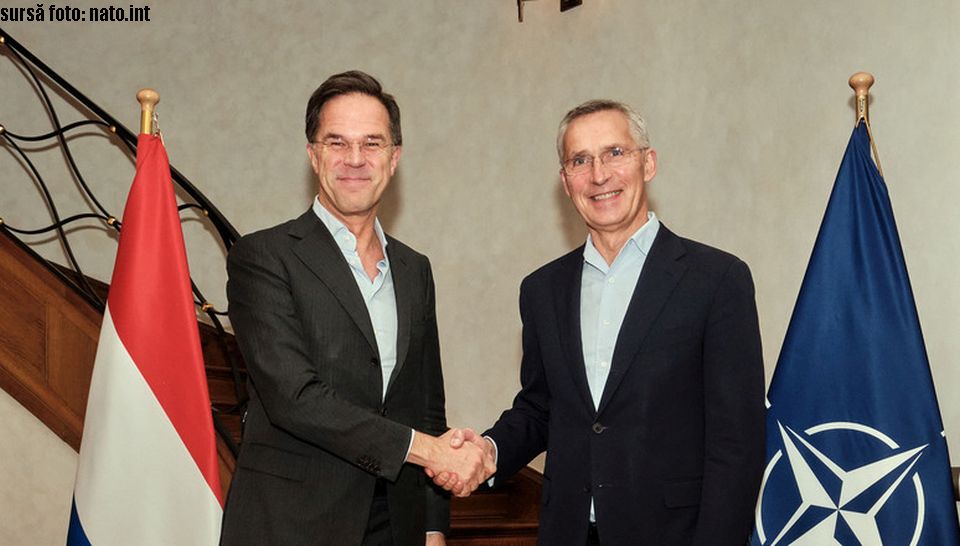A new chief for NATO
As Russia’s war of aggression against Ukraine goes on, the 32 NATO members nominate the Dutch PM Mark Rutte for the Alliance’s top civilian post.

Sorin Iordan, 27.06.2024, 13:50
The Dutch PM Mark Rutte will be the 14th secretary general of the North Atlantic Treaty Organisation, replacing the Norwegian Jens Stoltenberg, a former PM of Norway, who has led the Alliance since 2014.
The decision made by NATO’s leading decision-making body, the North Atlantic Council, which comprises officials for the 32 member states, was a mere formality, after Rutte’s last challenger, the Romanian president Klaus Iohannis, announced he was pulling out of the race for lack of support.
NATO’s new leader will take office on October 1, but until then his appointment will be made official at the summit due in Washington this July. Rutte’s name had been mentioned ever since 2023, and quite rapidly he secured the support of several NATO members, including the US, the UK, France and Germany.
For a while, the Estonian PM Kaja Kallas was also in the race, with support from the Allies on the eastern flank, who argued that those countries needed better representation in the Alliance, in the context of the war initiated by Russia in Ukraine.
The candidacy of Klaus Iohannis, on the other hand, is still a mystery. The reasons why the Romanian president announced his bid for the post are yet unknown, given that at that time Rutte was already backed by important NATO members.
Mark Rutte is known for his critical position regarding Russia, and for the political and military support for Ukraine. The Netherlands is one of the Allies that reached the target of 2% of GDP earmarked for defence, in line with NATO requirements, and has provided Ukraine with F-16 aircraft.
The incumbent NATO secretary general, Jens Stoltenberg, welcomed the nomination of Mark Rutte as his successor. He said the latter was “a true trans-Atlanticist, a strong leader, and a consensus-builder.” “I know I am leaving NATO in good hands,” Stoltenberg added.
Apart from the war in Ukraine, Rutte might have to handle a prospective US administration headed by Donald Trump, the promoter of “America First” policies, should the latter return to the White House after the presidential election.
In Kremlin, the announcement regarding the new NATO chief was received with scepticism. Rutte’s appointment will not entail changes in NATO’s approach, which is “hostile” and aimed at “supressing” Russia, as the Russian presidency’s spokesman Dmitry Peskov said on Wednesday.
He once again accused NATO members of getting involved directly in the war in Ukraine, by supplying heavy weaponry to Kyiv, and warned that Russia would retaliate after the Ukrainian army received the green light to use such weapons against targets on Russian territory. Peskov also emphasised that at present Moscow is treating NATO as a hostile alliance. (AMP)






























